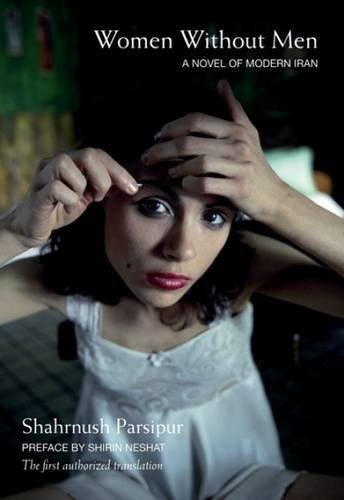words by Cheryl S. Ezekiel
It's hard to imagine a world without Shahrnush Parsipur — one in which silence replaces defiance and the stories of women yearning for freedom remain untold. In our Western countries, we can often forget how free we are, but, for decades, fearless storytelling has been challenging Iran’s patriarchal boundaries and given women a language for their own rebellion. To erase the voices of women like Shahrnush is to erase the courage of countless women who, through her fiction, learned that resistance is possible from one sentence.
Born on 17th February, 1946 in Tehran, Parsipur started publishing short journals and novellas in the 1960s. Her first full-length novel, The Dog and The Long Winter, was published in 1974 followed by a volume of short stories in 1977. Her works, particularly her acclaimed story, Women Without Men, delve into themes of female autonomy, identity, and societal oppression, challenging the restrictive norms of her time in Iran. This boldness led to multiple imprisonments under Iran’s censorship laws and a lifetime ban on her writings in her home country.

Beginning her journey as a fiction writer and television producer, Parsipur’s moral compass steered her to resign from Iranian National Television in protest against the execution of two activist poets before the 1979 Revolution. This act of defiance marked the beginning of a life intertwined with resistance and repression.
She was first imprisoned under Iran’s strict laws against “anti-revolutionary activities” and “immoral behaviour.” Authorities claimed her writing — especially of Women Without Men — promoted un-Islamic values, such as female sexuality and independence. The novel’s focus on the interconnected lives of five women navigating societal constraints was revolutionary, which was seen as a direct challenging of patriarchal and religious norms of Iranian's religious culture. By weaving a narrative that boldly explores themes such as virginity, female autonomy, and resilience, Parsipur crafted a story that resonated deeply with readers but drew the ire of Iranian authorities.
Parsipur was held in prison without trial. She was released after enduring significant abuse and international outcry, but her punishment did not end with incarceration. The Iranian government imposed a lifetime ban on her work, ensuring that her voice would not reach her fellow citizens. Yet, censorship could not contain Parsipur’s influence. This persecution profoundly shaped Parsipur’s storytelling and her candid accounts of incarceration reveal the systemic silencing of dissident voices in Iran.
In 1994, she fled Iran, seeking refuge in the United States. She landed in Northern California, where she continued her literary work in exile. Women Without Men transcended Iran’s borders, gaining global recognition for its profound storytelling and universal themes. The novel was adapted into a critically acclaimed feature film by Iranian-American artist Shirin Neshat, with the same name in 2009. The film not only brought Parsipur’s vision to new audiences but also highlighted the ongoing struggles for women’s rights and autonomy in restrictive societies. It served as a poignant reminder of the resilience of those who dare to challenge oppression through creativity.
Parsipur’s courage extended beyond her literary endeavours. Her life itself became a symbol of resistance. Named one of the BBC’s Top 100 Women in 2024, she has become a global figure whose work continues to shed light on issues of identity, freedom and resistance to harsh power structures. Her stories transcend cultural and geographical boundaries, resonating with individuals who see in her characters their own struggles for self-determination and dignity.
Despite the bans and threats, Parsipur’s voice has not been silenced. Outside of Iran, she continued to write, producing works that delve into the human condition and confront the complexities of existence. Her life in exile has been marked by a bittersweet mixture of freedom to express her ideas and the pain of being separated from her homeland. Yet, she remains steadfast in her belief in the transformative power of literature to inspire change.
Parsipur's work continues to be studied, celebrated, and shared even today. Her life and career are not just a testament to the power of storytelling, but also a call to action for innovators and creators everywhere: use your voice, illuminate truth, confront injustices, and inspire change, no matter the cost.